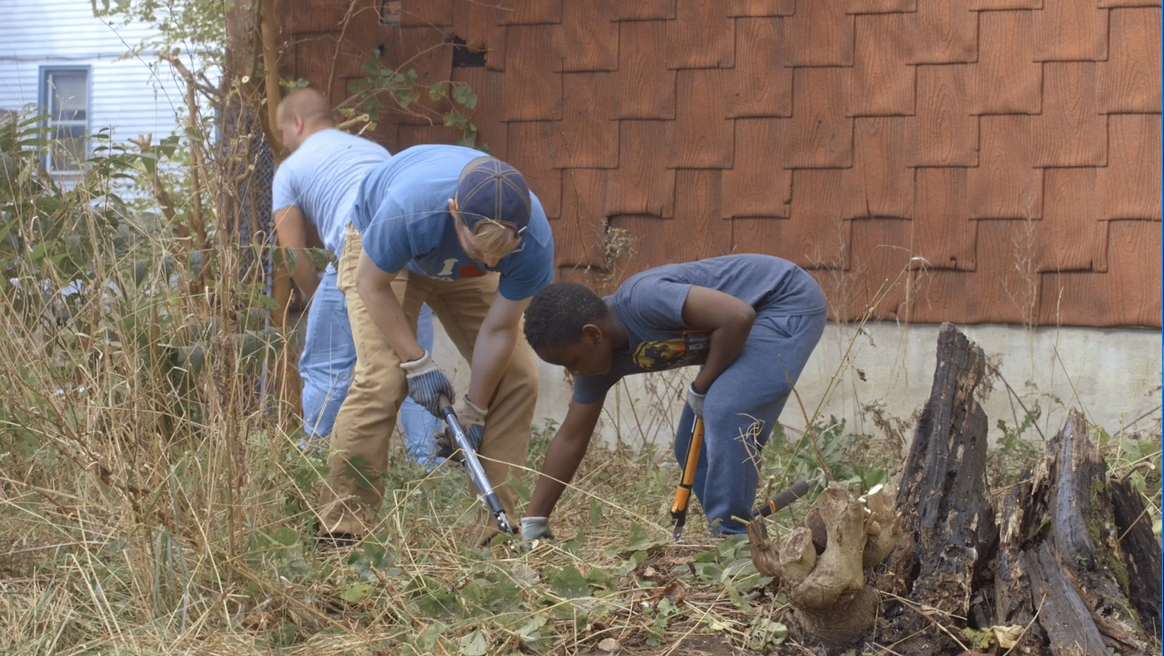Topic(s): Projects and Events
2017 Year in Review: You made change happen!
December 15, 2017


Thank you for all you did in 2017 to support communities experiencing property vacancy, abandonment, and deterioration. We reached 1,000s of people through our work, and are pleased to share highlights with you from the past year:
Helping communities innovate
This year, three communities were selected as TASP scholarship recipients for the first time: Albany, New York; Huntington, West Virginia; and Memphis, Tennessee. The Technical Assistance Scholarship Program (TASP) engages communities that are ready to engage in a forward-thinking technical assistance process to assess, reform, develop, and/or implement systems to address large-scale vacancy and abandonment in their communities. In 2017, projects ranged from reforming code and delinquent tax enforcement systems, to exploring how a land bank and community land trust can partner. We also provided follow-up assistance to three communities that received TASP awards in prior rounds: Dallas, Texas; Gary, Indiana; and High Point, North Carolina. Click above to watch a video from the Albany TASP project, and visit the dedicated TASP page to learn more about the scholarship!
Going deep in Detroit and Flint
This year, our Michigan program served over 25 partners through our place-based programs in Detroit and Flint. Our work in Detroit focused on improving property tax, code enforcement, and vacant land reuse systems – one highlight included bringing a Detroit delegation to Atlanta to learn more about reuse of land for Atlanta’s Beltline greenway. Through our work in Flint, we examined the capacity and systems that exist to support housing rehabilitation and worked to uplift resident-led vacant land stewardship — one highlight of that was a resident-focused learning exchanging that brought Flint and Syracuse residents to Pittsburgh to learn more about vacant lot reuse strategies.
Training leaders in solutions for tough property challenges
Launched this year in Indianapolis, Indiana and Hartford, Connecticut, the Vacant, Abandoned, and Deteriorated Properties Training Academy (VAD Academy) was a critical training opportunity for public, private, and nonprofit leaders working to resolve property vacancy, abandonment, and deterioration. Each academy approximately 150 attendees from across the country, who participated in interactive classroom sessions and discussion-based group exercises based on topics such as Using Data to Understand Neighborhood Conditions, Strategic Code Enforcement, and Rental Regulation. Visit the VAD Academy page to learn more.
Making it easier to use data to shape revitalization efforts

Released in April, Neighborhoods by Numbers: An Introduction to Finding and Using Small Area Data, is a practical, accessible guide that walks readers through how to find, understand, and use key local and national datasets. If you haven’t had a chance to do so, download your copy today!
Highlighting inspiring revitalization projects
From Los Angeles, California, to Baltimore, Maryland, hundreds of people participated in the #LoveThatLot campaign and displayed their love and appreciation for revitalization projects across the country. These projects were inspirational, and provided strong, replicable examples of the ways in which vacant parcels can be transformed into gardens, farmers markets, orchards, and more. Click here to see highlights from this year’s campaign!
Keep it going in 2018!
With your support, we can continue this work to not only showcase the work of community champions, but also provide trainings, assistance, and other services needed for communities facing serious vacancy and abandonment challenges. Will you give today to support strong communities in 2018?
Subscribe to join 14,000 community development leaders getting the latest resources from top experts on vacant property revitalization.



